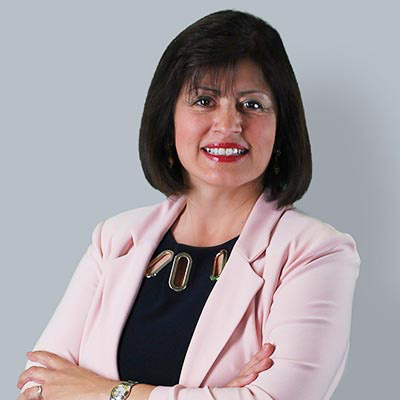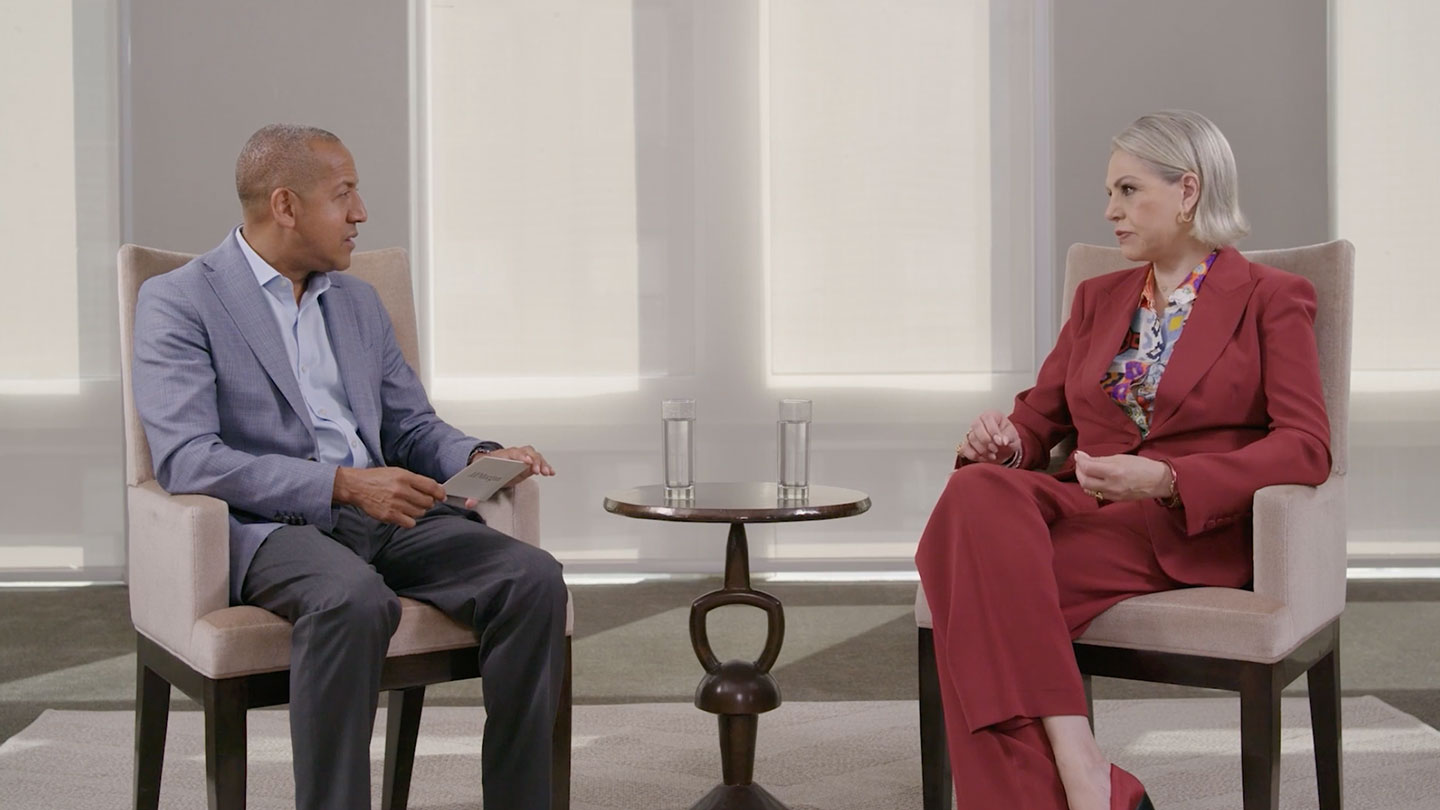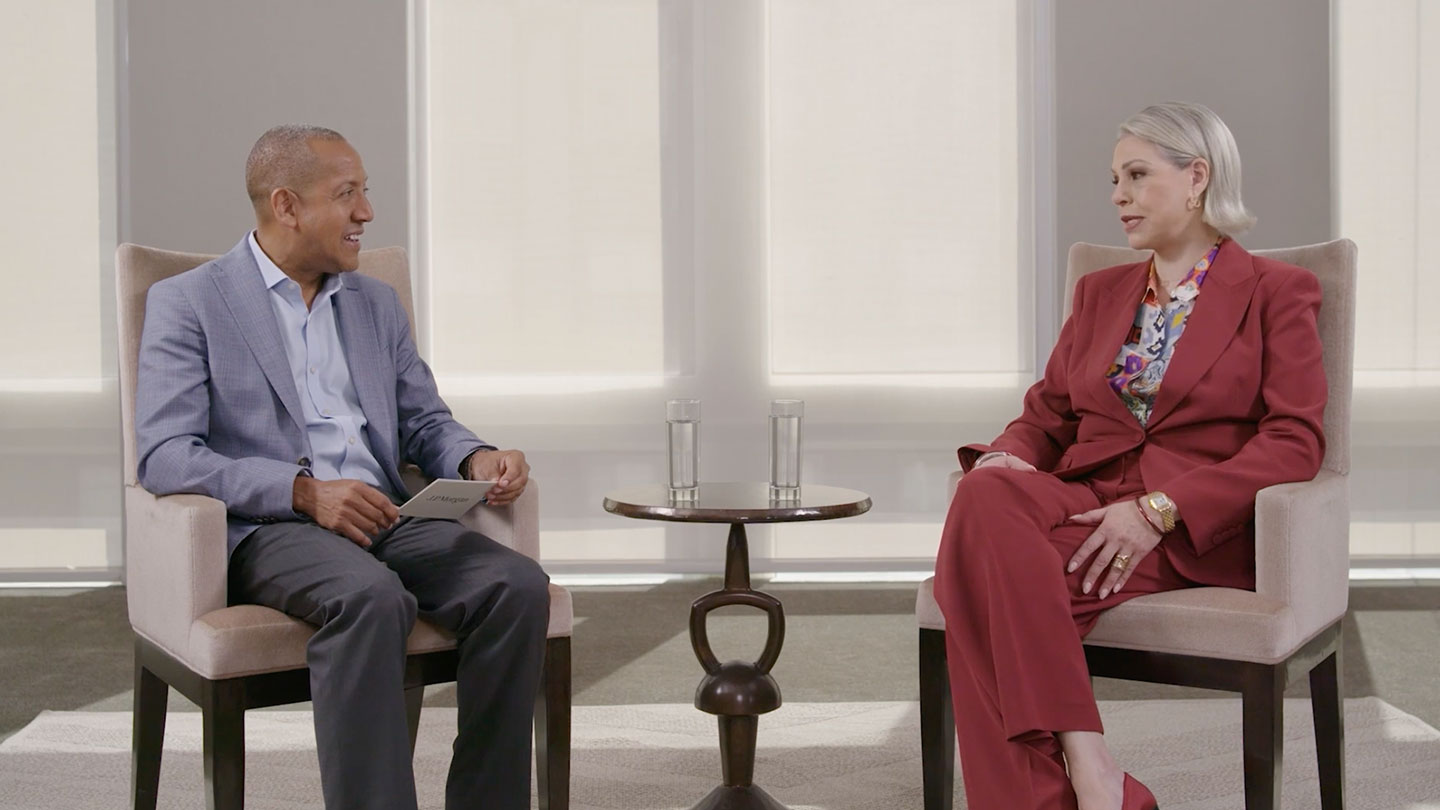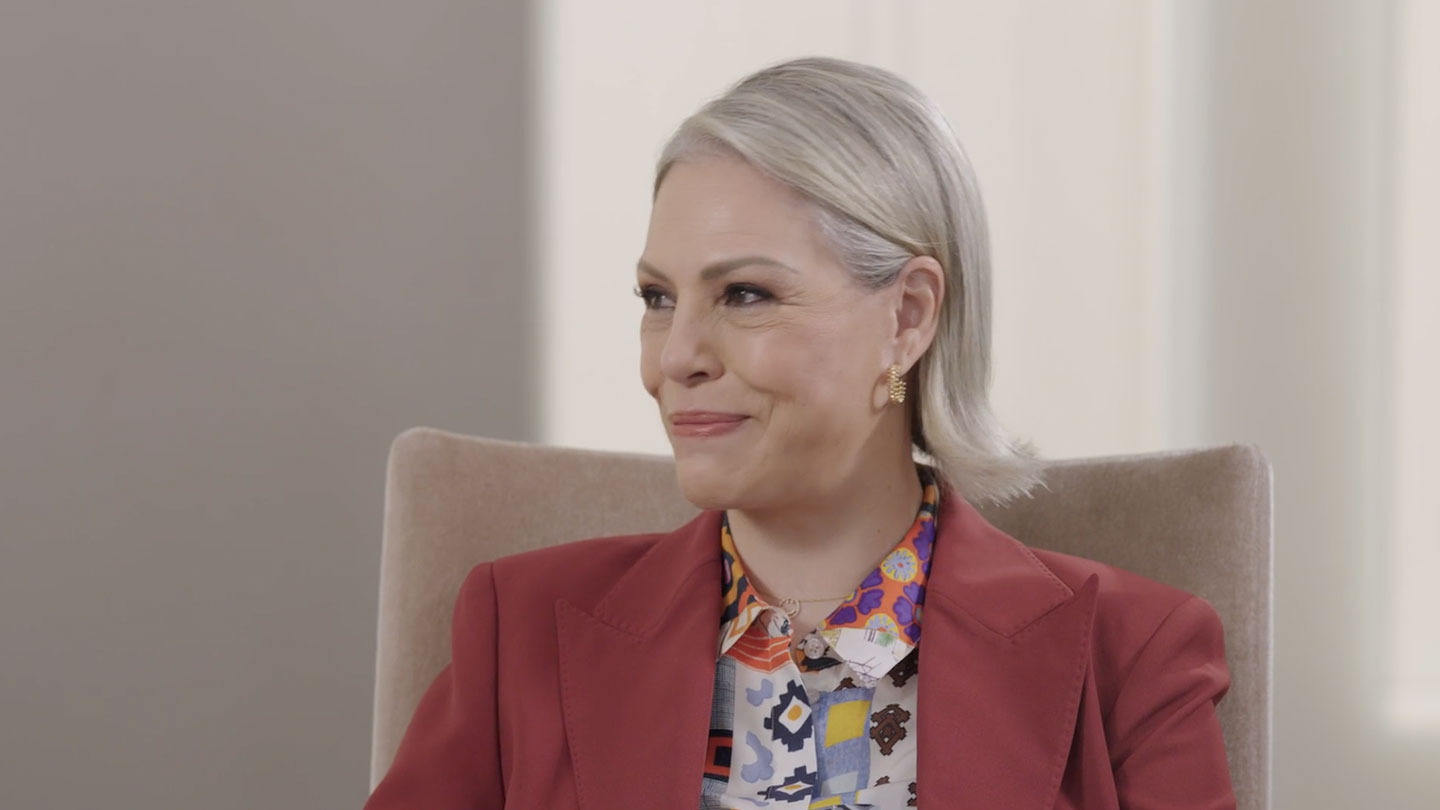Businesses today face constant change and uncertainty. Between economic fluctuations, mixed market signals, complex Fed strategy and shifting workplace dynamics, companies must stay nimble to thrive.
To celebrate businesses that become stronger through adversity, we’re speaking with local and diverse owners about their success. We’re focusing on how they’re overcoming challenges in:
- Talent management
- Financial discipline and strategic planning
- Business resiliency and leadership
- Community impact
This is the third conversation in our ongoing series, “Thriving in uncertain times,” where we hear from business leaders on how they build resilient organizations. In this discussion, Frederick Royall III, National Head of Diverse Businesses for JPMorganChase Commercial Banking, spoke with Martha de la Torre, CEO and co-founder of the largest Spanish-language classifieds service in the U.S.

Meet Martha de la Torre
- CEO of EC Hispanic Media, which operates El Clasificado and other marketplace sites serving Spanish-speaking communities across the U.S.
- Co-founder of El Clasificado; she and her husband, Joe Badame, transformed it from a direct-mail publication into a comprehensive print and digital marketing platform with classifieds and lifestyle content
- Former CPA and audit manager who specializes in businesses targeting Hispanic and Latino markets
- Winner of Editor & Publisher Magazine’s 2020 EPPY Award for its EC Stimulus Package during the COVID-19 pandemic
- Recognized by the U.S. Small Business Administration’s Los Angeles office as 2003 Minority Small Business Person of the Year
Talent management
Finding—and retaining—talented employees is crucial in an environment with record low unemployment levels. Even a company that publishes millions of job listings has challenges finding the right workers.
A company’s reputation—and how it treats people—can go a long way in attracting applicants.
“People like coming to work here,” de la Torre said. “We train people who often start with no skills, and they can learn digital marketing.”
Working at EC Hispanic Media has even attracted the attention of recruiters at major tech companies like Google. When those companies hire her people, de la Torre considers it “a badge of honor.” Better still: When “those great employees who went to the corporate world come back,” she added. “It’s important we keep relationships with our former employees.”
COVID-19 changed the workforce, but the publishing industry has been navigating disruptions going back decades. De la Torre said her employees have always been motivated to adapt—and a culture of promotion from within encourages teams to add new skills.
“We always try to keep our eye on the future, on where we want to be, and hire the skills that we need tomorrow.”
Financial discipline and planning
De la Torre takes a balanced approach to risk management. Testing new approaches helps the company innovate and grow—even if some of the ideas fall short. Everything is discussed, alternatives are compared, and opportunity costs are calculated.
“We try to stick to things that are part of our core business,” she said. “There are often many things we can do being in the Hispanic market. It’s a blue ocean out there—a lot of Latinos are not being served the same services as the non-Latino market—but we can’t do everything.”
The approach has allowed EC Hispanic Media’s legacy print operation to remain profitable in a digitized world.
“It’s about anticipating obstacles and challenges, whether the economy or disruption in our industry,” she said. “Anticipate and work toward the future—even if it’s just an inch and not leaps, because of things out of our control.”
Resiliency and leadership
Companies need resilient systems, but resiliency is also a mindset that gets easier over time, de la Torre said. And the willingness to ride out hard times presents new growth opportunities.
“Those first tough years, we struggled with cash flow. Surviving that, you can find happiness out of that experience, something that was so negative,” she said. “We survived Y2K, no problem. We survived 9/11. We survived the 2008 crash; we actually did better.”
EC Hispanic Media calls its long-term objectives BHAGs: Big, Hairy, Audacious Goals.
“That’s like the Everest goal,” she said. “We always want to move forward toward that success, but we always want to be in control and don’t want to destabilize the company with decisions we’re making.”
Community impact
In one of the darkest periods of the COVID-19 pandemic, EC Hispanic Media threw a lifeline to struggling organizations by helping them move their businesses online. Understanding its customers’ urgent needs, de la Torre and her team launched an EC Stimulus Package promotion that deepened customer loyalty, solidified a growing digital market and earned acclaim from across the media industry.
How JPMorganChase is helping
We strive to be a true champion of all entrepreneurs, including local, diverse and underserved businesses. We’re making a real difference by deploying resources and investments that help businesses navigate current challenges and come out stronger than ever.
Looking for more insights from local and diverse business owners? See how Travis Mack and Janice Bryant Howroyd have continued thriving in these uncertain times.
To discover how we can help your company, contact our banking team and follow us on LinkedIn.
JPMorgan Chase Bank, N.A. Member FDIC. Visit jpmorgan.com/commercial-banking/legal-disclaimer for disclosures and disclaimers related to this content.







